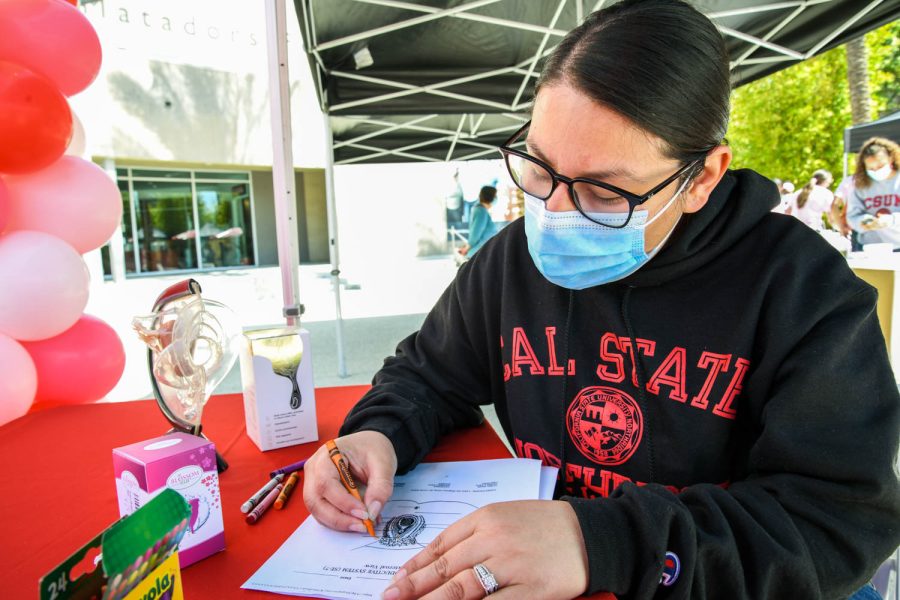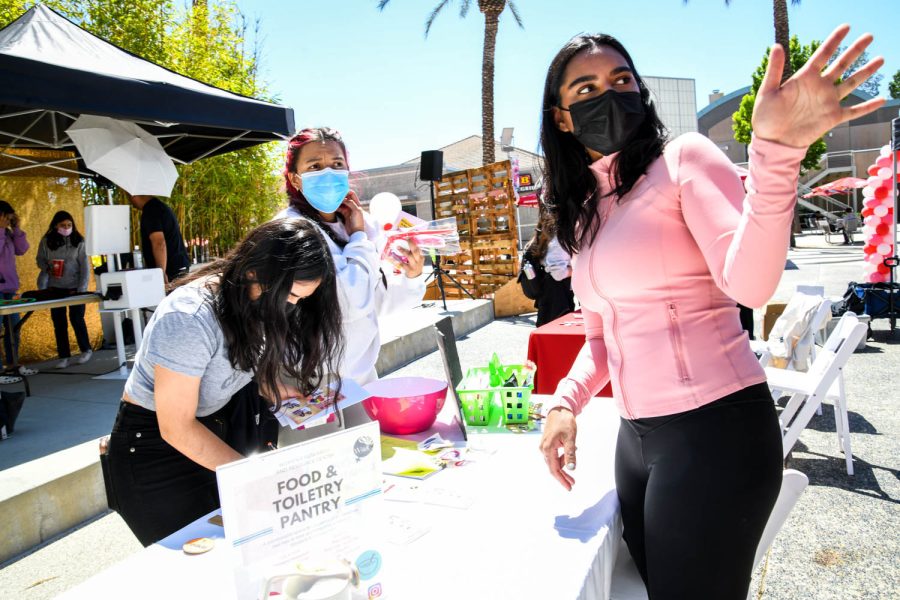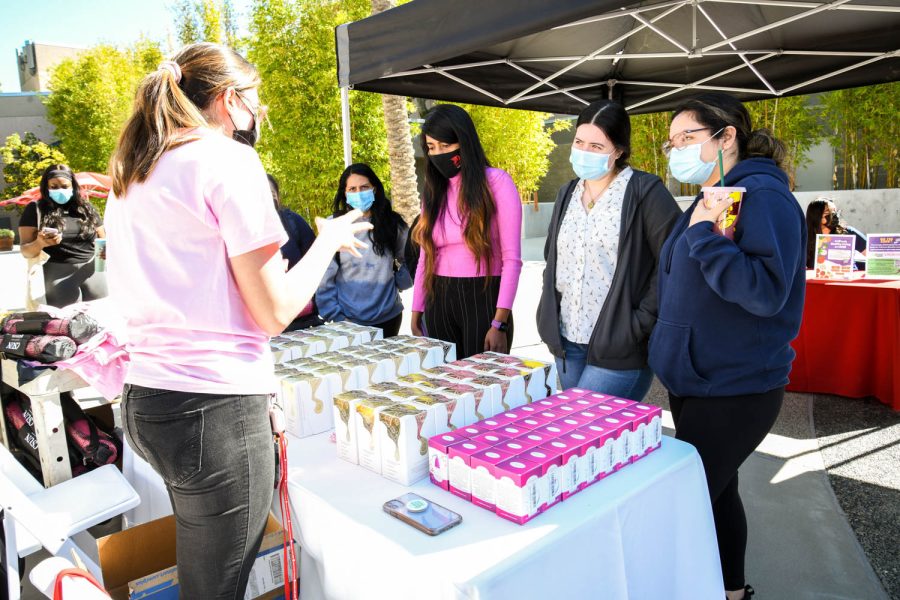CSUN aims to end the stigma around periods
May 5, 2022
From the new Disney movie “Turning Red” to the push for free menstrual products in restrooms, periods are being talked about. Conversations about menstruation have slowly become more accepted in recent years, but there is still much stigma that surrounds it.
“I still feel like talking about my period is extremely awkward, I barely talk about it with my family,” said Melanie Lopez, an anthropology major at CSUN.
According to a 2021 Thinx and PERIOD study on period poverty among U.S. teenage students, 76% of students feel that menstruation is negatively associated with being gross, while 65% agree that people are taught to be ashamed of their periods.
“It’s interesting to see the kinds of words I use with my friends versus the words I use with my family [to talk about periods],” Lopez said. “When I refer to menstruation, they often interchange depending on how comfortable I am with the person.”
Over time, people have changed the words they use or created new ones when referring to their menstruation cycles in order to avoid directly talking about the subject, according to Ida Tin, co-founder of the period-tracking application Clue. Some of these words include “period” and “female troubles,” among 5,000 other types of slang across ten different languages.
For Zaina Amrin, a CSUN psychology major, working for the school’s Women’s Research and Resource Center has been important in helping her feel more comfortable with menstruation and the conversations surrounding it.
“I associate myself with people who don’t really have a negative perception on a period or a shameful perception,” Amrin said. “I work at the Women’s Center and obviously at the Women’s Center, if you do come in with a negative perception, we try very hard to flip it or change it.”
The WRRC, located on CSUN’s campus near the Black House and Glenn Omatsu House, provides students with resources pertaining to personal wellness and menstruation, like reusable menstrual cups and pads.
Although discussions about periods are encouraged at CSUN, the reality is that it still feels very unnatural for many people to be upfront about how this bodily function affects them. It might be easier for many menstruating individuals to speak about their periods behind closed doors in order to avoid feelings of embarrassment or discomfort.
Christina Campbell, a CSUN anthropology professor who teaches the Anthronpology of Sex course, emphasizes the importance of talking openly about menstruation. She believes it can help demystify the topic and lead to other conversations on the importance of sex education.

“I think that there’s also a lot of misinformation out there, and the more that we talk about it, and the more that we’re open about it, the more people will get correct information as opposed to misinformation,” Campbell said. “I also think that a lot of that misinformation stems from a lack of good sex education, and that is a major problem in our communities.”
Despite the fact that roughly half of society experiences menstruation at some point in life, the stigmas that have been created around the topic can make conversations about it feel taboo.
“The main thing is to demystify it, and to destigmatize it. I mean, there’s a whole lot of cultures [that] have bad stigmas about menstruation, because it is really the only example of pretty significant bleeding when you’re not injured,” Campbell said.
In addition to the negative perception of public menstruation conversations, there is also an issue surrounding the lack of menstruation resources, which may be addressed if such conversations are normalized, according to Amrin.
“Girls are starting to menstruate at a really young age these days,” Campbell said. “And for them, it would be a hell of a lot easier for them to transition, and deal with what’s happening with their body without having to deal with negative psychological stuff associated with it.”
Over three-fourths of teenage students in the United States felt that a lack of access to period products is a big issue that people face and 76% agreed that it is not discussed enough, according to the Thinx and PERIOD study.
At CSUN, discussions about menstruation and access to menstrual products are being encouraged by places like the WRRC and through events such as C.R.A.M.P.S. Week, which was hosted by Associated Students.

Students on campus had the opportunity to openly talk and ask questions about menstruation during the three-day event, which included a “Do-It-Yourself Pad Workshop” on April 11, “Let It Flow Yoga” at the Student Recreation Center on April 12, and a “CRAMPS Panel and Resource Fair” on April 13.
“C.R.A.M.P.S. Week was created because the organizers just really wanted, like, menstruation equity to be more known, to normalize menstruation, and also get people to understand that there are a lot of people that don’t have access to sanitary products,” Amrin said.
There have also been efforts at CSUN to increase access to menstrual products. The University Student Union provides free menstrual products in all of its restrooms, and this will soon be expanded to the entirety of CSUN as a result of Gov. Gavin Newsom’s Assembly Bill 367.
With more access to menstrual products and open dialogue surrounding menstruation, there is a possibility that the topic will be less stigmatized as it becomes more accepted.
“My main hope is that menstruation conversations can continue to be more normalized in our society and that we shouldn’t have to hide it,” Lopez said. “Because, at the end of the day, it is part of what is happening in [menstruating individuals’] bodies.”
